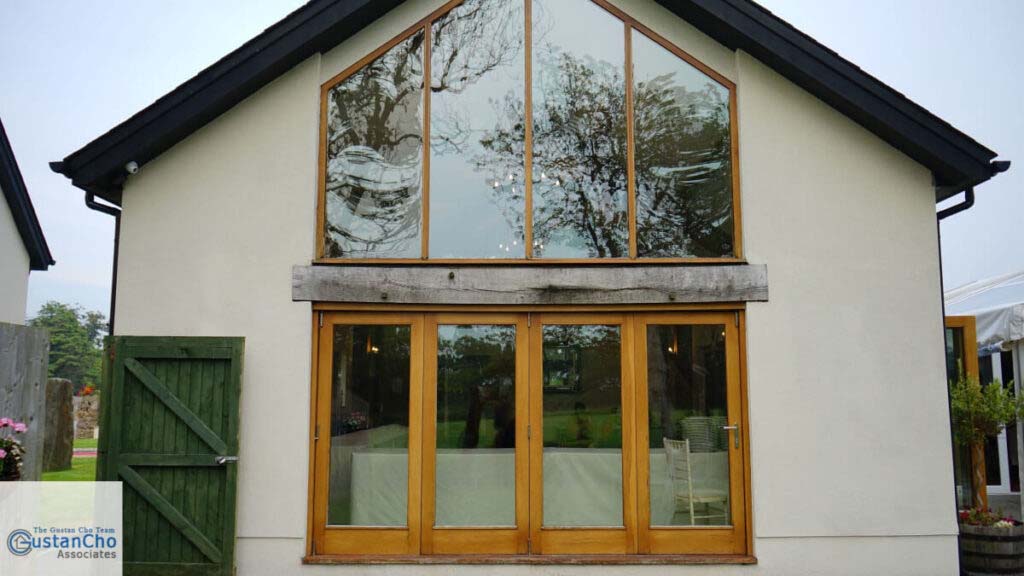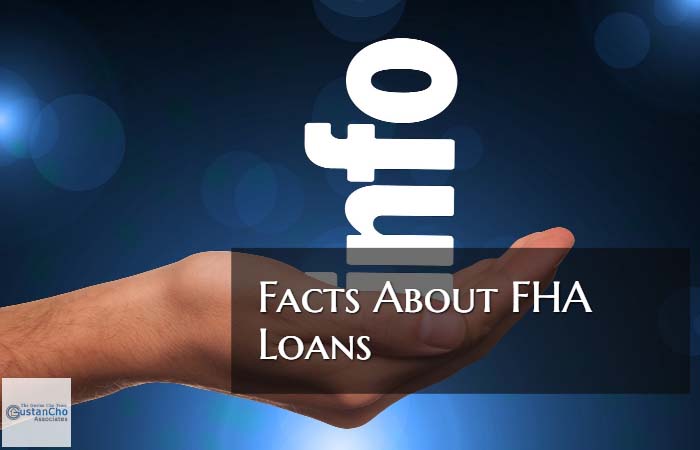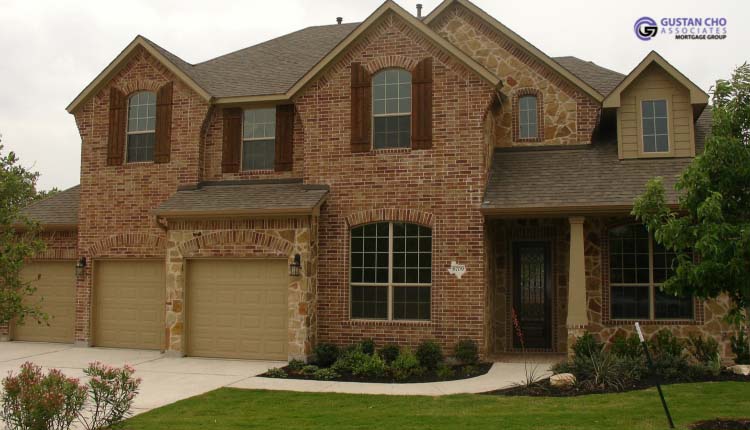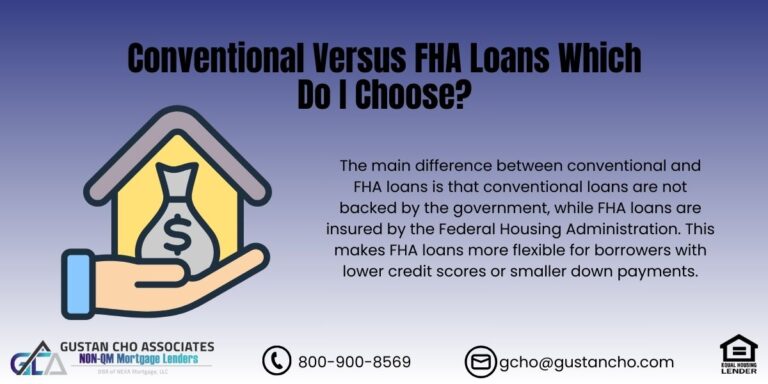11 Facts About FHA Loans Home Buyers Should Know When Qualifying
This BLOG On 11 Facts About FHA Loans Home Buyers Should Know When Qualifying Was Written By Gustan Cho of Gustan Cho Associates
FHA Home Loans are the most popular home loan program in the United States.
- FHA is not a lender
- HUD is the parent of FHA
- The role of FHA is to insure and guarantee lenders who originate and insure FHA Loans
- In order for HUD to insure FHA Loans, lenders need to meet all of HUD FHA 4000.1 Handbook Guidelines
- If a borrower does not meet HUD Guidelines and was funded with an FHA Loans, HUD will not insure the lender if the borrower defaults on their mortgage
- Due to this government guarantee, lenders are more than eager to finance FHA loans with 3.5% down payment at extremely low mortgage interest rates
- Due to the lax mortgage lending requirements and low down payment required, FHA Home Loans are the number one home loan of choice for home buyers, especially first time home buyers
In this article, we will discuss and cover 11 Facts About FHA Loans Home Buyers Should Know When Qualifying.
What Makes Mortgages A FHA Loan?
The first fact about FHA Loans is they are home loans originated by private lenders and banks.
- The reason it is called FHA Loans is due to the fact that the United States Department of Housing and Urban Development (HUD), the parent of FHA, insures the lender in the event homeowners default on their home mortgages
- FHA will insure lenders a percentage of the Loan To Value to the lender is protected and their losses are minimized with this government insurance
- FHA borrowers are responsible to pay for a one time upfront FHA mortgage insurance premium and a lifetime annual mortgage insurance premium also referred to as FHA MIP
FHA has a pool where all of the FHA MIP goes and they use this pool to insure lenders against losses.
Facts About FHA Loans Versus Conforming Mortgages
Two of the most common loans in the United States are FHA Home Loans and Conventional Loans. There are times where borrowers can qualify for conventional loans and not FHA Loans and vice versa.
Here are the comparison facts about FHA Loans Versus Conforming Loans:
- FHA requires a minimum 580 credit scores for 3.5% down payment home purchases
Home Buyers with credit scores between 500 and 579 can qualify for FHA Loans with 10% down payment
- Conventional Loans require 620 credit scores with 3% to 5% down payment
Debt To Income ratios of 46.9% front end and 56.9% back end to get an approve/eligible per Automated Underwriting System (AUS):
- Conventional Loans do not have a front end DTI
- Maximum DTI on conforming loans is 50%
Two year wait period after Chapter 7 Bankruptcy discharged date:
- Conforming Loans require a 4-year waiting period after the discharge of Chapter 7
- Three year wait period to qualify for FHA Home Loans after foreclosure, deed in lieu, short sale
- Conventional Loans mandate a four-year waiting period after a deed in lieu and/or short sale
- 7 year wait period after standard foreclosure to qualify for a conventional loan
Borrowers can qualify for FHA Loans one year into a Chapter 13 Bankruptcy repayment plan with Trustee Approval:
- No waiting period after Chapter 13 Bankruptcy discharged date
- Conforming Loans require two years after Chapter 7 Bankruptcy discharged date
- No waiting period after Chapter 13 Bankruptcy discharged date as long as borrowers have been timely on all of their payments in the past 12 months
- Conventional Loans require 4 year waiting period after Chapter 13 dismissal date
Income-Based Repayment (IBR) not allowed:
- Borrowers with high student loan balances can get a fully amortized monthly payment over the extended term (25 years) in writing by the student loan provider
- Fully amortized monthly hypothetical payment can be used in lieu of 1% of the student loan balance
- This figure normally turns out to be around 0.50%
Conventional Loans allows Income-Based Repayment to be used as long as it reports on all credit reports:
- There are times where we may need to have borrowers with higher student loans go conventional instead of FHA
Facts About FHA Loans For Borrowers Who Had Prior Mortgage Included In Chapter 7 Bankruptcy
If a home buyer had a prior mortgage included in their Chapter 7 Bankruptcy, the date of the housing event transfer may be an issue with FHA Loans.
Here is how it works:
- If the buyer had a prior mortgage included in their Chapter 7 bankruptcy, there is a three year wait period after the transfer of the housing event to qualify for FHA Loans
- Housing events are foreclosure, deed in lieu, short sale
For example, if a prior mortgage was included in the Chapter 7 bankruptcy case scenario:
- Mortgage included in Chapter 7 bankruptcy which was discharged January 1, 2014
- Foreclosure was not finalized until January 1, 2018
- This borrower will not qualify for FHA Loan until 3 years from the start date of the waiting period of January 1, 2018
However, if borrowers were to qualify for a conventional loan, the waiting period is four years from the discharged date of Chapter 7 Bankruptcy discharged date and the recorded housing event date does not matter
- Cannot reaffirm the mortgage
- So on the above example, the borrower will qualify for a conventional loan but not FHA because borrower passed the 4-year waiting period after the discharge date of Chapter 7
- The housing event of the foreclosure that happened on January 1, 2018, does not matter with conforming loans
The above case scenario is cases where borrowers can qualify for conforming loans but not FHA.
Facts About FHA Loans On Why They Are So Popular
Facts About FHA Loans is that many consumers think that FHA Loans are for home buyers with bad credit.
- This is not always the case
- These mortgages are insured and guaranteed by the government
- Due to this guarantee, lenders can offer lower mortgage rates and less restrictive in underwriting on FHA Loans than conventional loans
- Although borrowers on FHA Loans may have mortgage insurance for the life of the loan of 0.85%, private mortgage insurance for conventional mortgage borrowers with lower credit scores may be significantly higher
- Home Buyers with 500 credit scores can qualify for FHA mortgages
However, any credit scores under 580 require a 10% down payment. 3.5% down payment for borrowers over 580 credit scores.
Facts About FHA Loans On Closing Costs
Many first time home buyers already have the 3.5% down payment but are delaying consulting with loan officers due to not having any closing costs.
- Most of our borrowers at Gustan Cho Associates Mortgage Group does not pay for closing costs
- Closing Costs are loan origination and third-party charges in any purchase and/or refinance transaction
- Generally, the loan officer with talk to the real estate agent and will explain the realtor on how to structure the seller’s concessions
- Buyers cannot have sellers concession overages
- Any overage in sellers concessions needs to go back to the home seller
Most loan officers will use the seller concession overage to buy discount points to buy down the rate so they do not waste any sellers concessions.
Buying Fixer Uppers With HUD FHA 203k Renovation Loans
HUD has the 203k Renovation Loan Program for homebuyers of fixer-uppers.
There are two types of 203k Rehab Loans:
- Streamline where the maximum construction budget is $35,000 and homeowners cannot do structural changes/repairs
- Full standard FHA 203k Renovation Loans where there is no limit on the budget as long as it does not go over the FHA Loan Limit in the area
FHA 203k Mortgage Guidelines are the same as standard FHA Loans. 3.5% of the after the improved value is required. Owner occupant one to four units properties qualify. A complete gut rehab can be done with 203k loans. Room additions and complete second-floor additions can be done with a standard FHA 203k Loan.
To Summarize 11 Facts Borrowers Should Know

We have covered a lot of information on Facts About FHA Loans on this blog.
To summarize, here are the 11 Facts About FHA Loans every borrower should know:
- 580 minimum credit scores for 3.5% down payment home purchase
- Home Buyers with 500 to 579 credit scores can qualify with 10% down payment
- Outstanding Collections and Charged Off Accounts do not have to be paid to qualify for FHA Loans
- In lieu of taking 1.0% of the outstanding student loan balance to be used as monthly debt, contact student loan provider and get fully amortized monthly payment over the extended term (25 years)
- Can qualify one year into Chapter 13 Bankruptcy Repayment Plan: No waiting period after Chapter 13 Bankruptcy discharged date
- Most borrowers do not have to worry about closing costs: HUD allows 6% sellers concessions for buyers closing costs. If sellers concessions are short, the lender can cover the difference with a lender credit
- Maximum 46.9% front end and 56.9% back end DTI to get automated underwriting system approval
- No waiting period after a timeshare foreclosure
- 100% gift funds allowed for the down payment and closing costs
- Multiple Non-Occupant Co-Borrowers can be added
Qualifying For FHA Home Loans With A Lender With No Overlays
Not all FHA Lenders are created equally. Just because a home buyer gets denied for an FHA Loan with one lender does not mean they will not qualify with a different lender. Gustan Cho Associates Mortgage Group are national lenders with no overlays on government and/or conventional loans. Over 75% of our borrowers are folks who could not qualify at other lenders due to their overlays. We have zero overlays. Borrowers looking for a five-star lender with no overlays contact us at Gustan Cho Associates at 800-900-8569 or text us for faster response. Or email us at gcho@gustancho.com.







